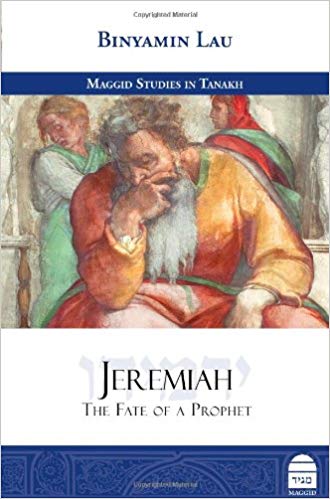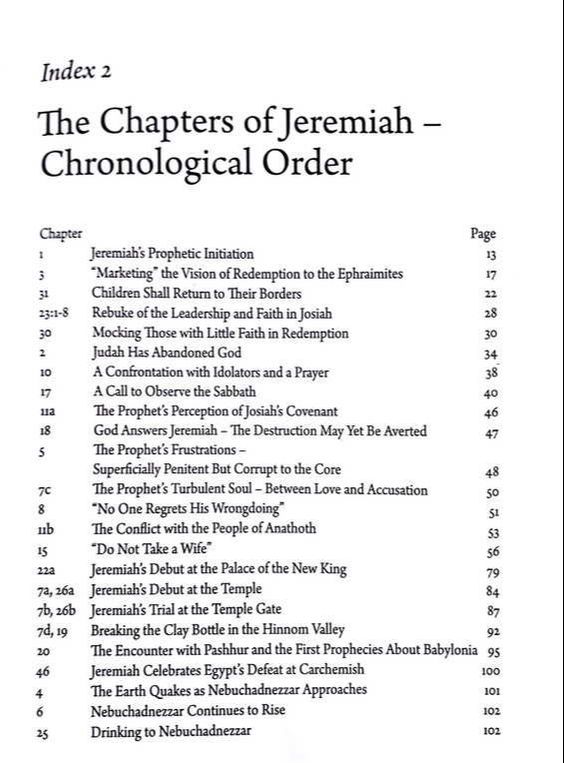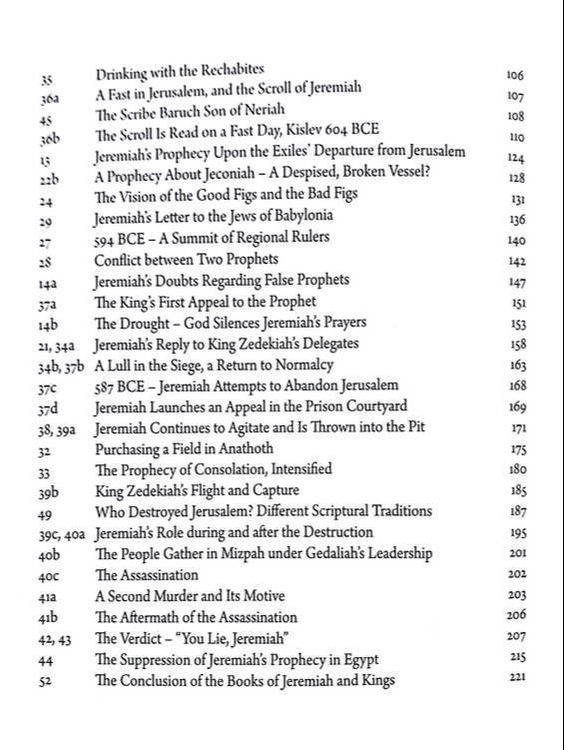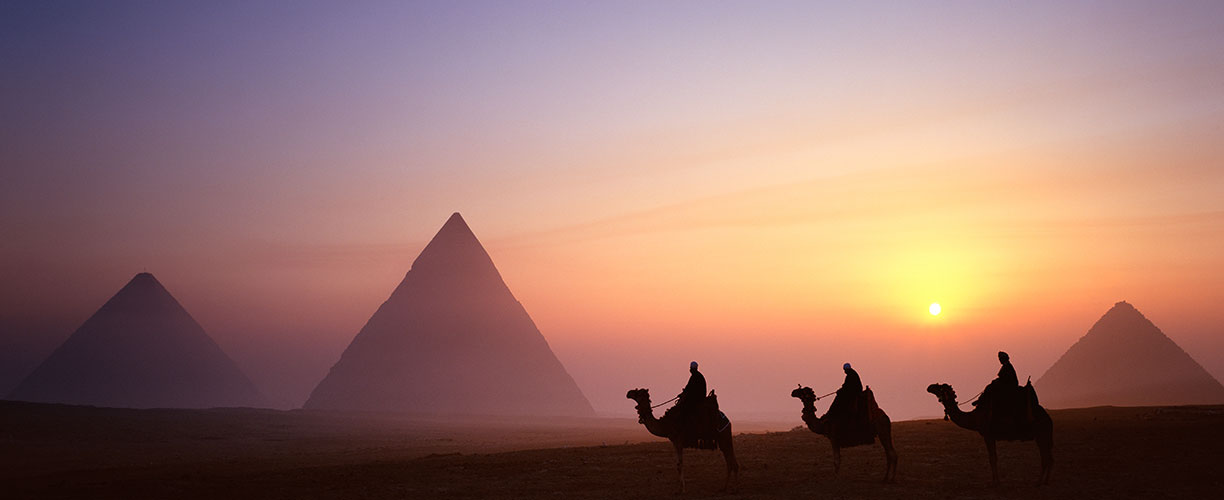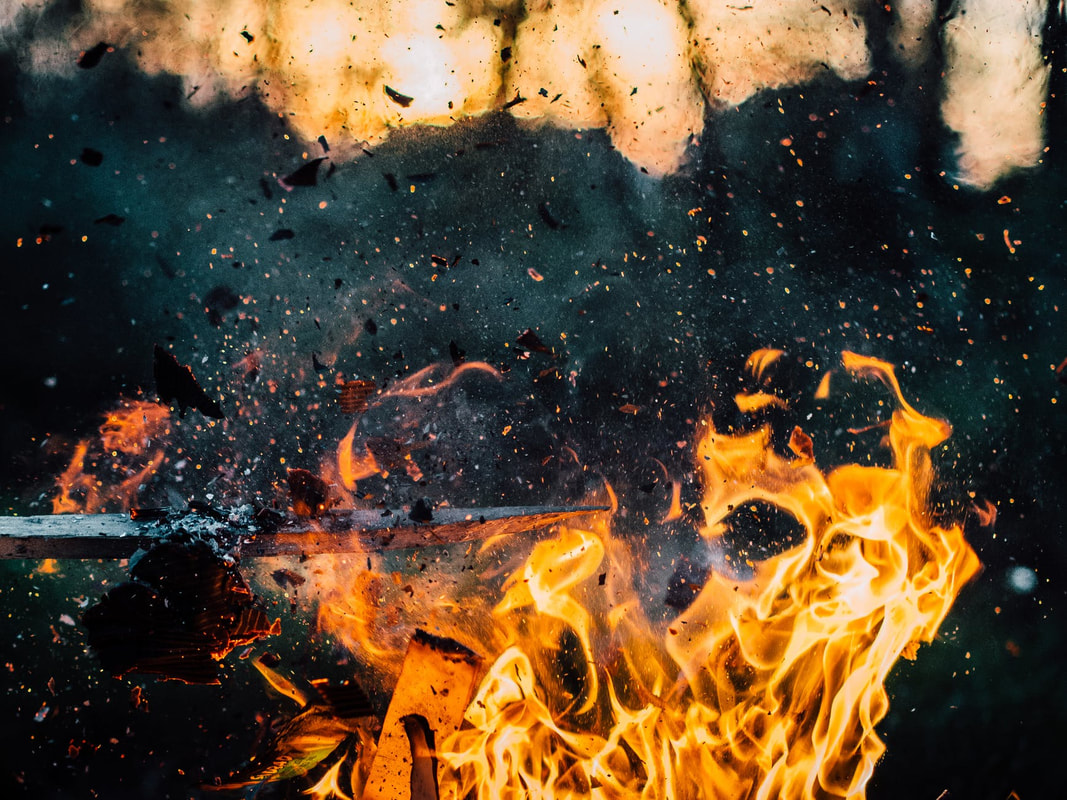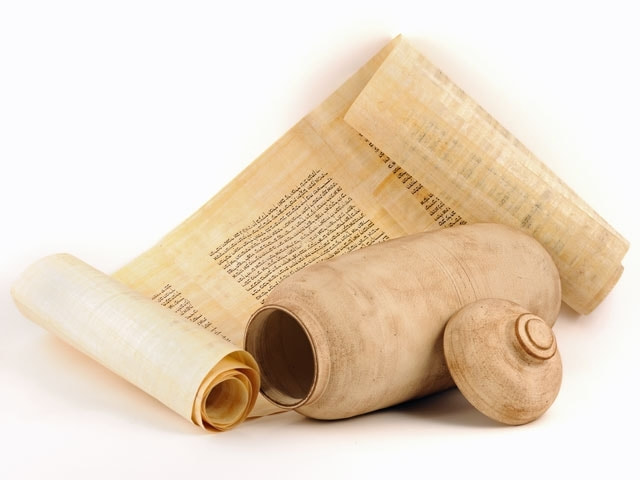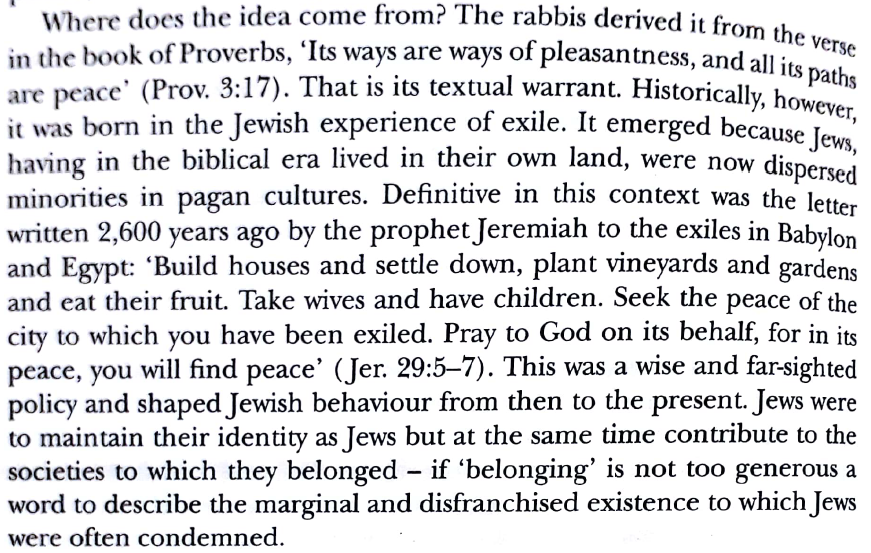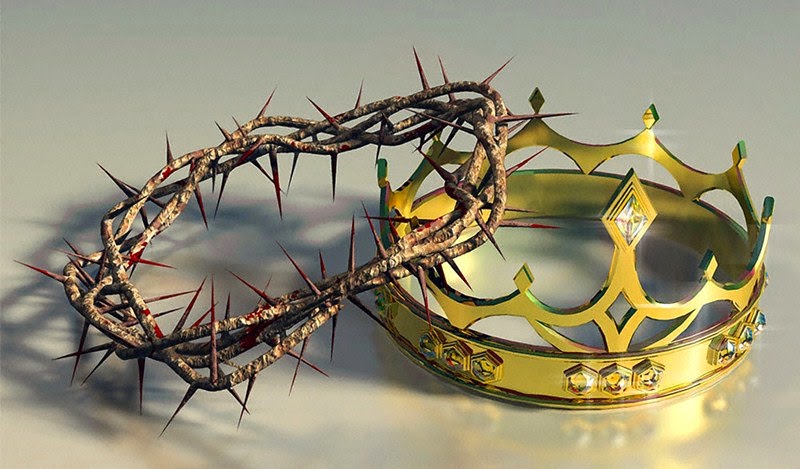The Order of Sefer Yirmiyahu
Learning it Out of Order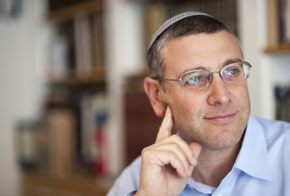
Before addressing possible answers, it is important to know that the book can be learned out of order. One example of someone who does this expertly is Rabbi Binyamin Lau in his seminal work, "Yirmiyahu."
He reorders the sefer based on what seems to be the order from the content of the chapter. Here is his order.
To make it easier, I created a playlist which reorders the Nach Yomi in the order he suggests.
Lack of Order Reflecting Confusion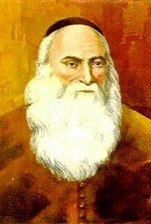
There are two approaches that I have been blessed to discover each with it's own spin on the subject.
The first is the idea of the Abarbanel. R. Don Yitzchak Abarbanel addresses this question in numerous places when it comes up. One such location is at the beginning of chapter 34, on pasuk 8. He argues that Yirmiyahu was only able to compile his life's work when in exile already. Sitting alone in Egypt or perhaps later in Babylon, Yirmiyahu finally has time to reflect and collect his ideas. He pens them as he remembers them. But it is not chronological by any measure. It is an experience of trauma and pain as he reflects on the horrible experience of encouraging the people, warning them, berating them and ultimately witnessing the destruction. As the memories come to him, he inks them. We as the reader are experiencing his pain and disconnectedness as he sits in exile. What a profound yet deeply saddening idea. The Five Scrolls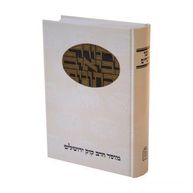
There is another theory which is suggested by R. Menachem Bula, the editor to the Daat Mikra edition on Yirmiyahu. In his introduction to the book, pages 41-44, he addresses the question of order in the book.
He points out that when reading Yirmiyahu, we see reference to three scrolls that he has written:
Scroll on Redemption. This is clearly chapters 30-33 which are the only longer sections in the book which are talking about the future redemption. He goes further to argue that even chapters 34 and 35 are part of this. Chapter 34 deals with the masters who freed their slaves under siege and how they recaptured them after the short reprieve. That is a fake experience of redemption. The mefarshim are clear that the slaves being recaptured is to be a metaphor for Israel who could go free if they would only listen to Hashem. Chapter 35 talks about the Reichav family and how deeply they hope to redemption that they even self restrict their lifestyle for the hope of change. Scroll to the Nations This section requires little research. It clearly refers to chapters 46-51 which is Yirmiyahu's prophecy to each nation surrounding Israel from the Philistines to the Babylonians. Scroll to Yehoyakim In chapter 36, Yirmiyahu commands Baruch ben Nerya to write up all his prophecies to date nd read it in the Mikdash. He does so numerous times, is overheard by a number of officials who bring him into the governors' meeting. He reads it again in front of them and then is commanded to send it to the king Yehoyakim. The king is not interested in the scroll and orders for it to be burned. After this Yirmiyahu commands Baruch to rewrite it and add onto it. It is not readily apparent what this scroll is. On the one hand it is meant to be a summary of all his prophecies and yet Baruch is able to read it easily a few times in one day. It must be referring to prophecies said up till the 4th year of Yehoyakim. What could it be? Chazal argue that this refers to the Megillah of Eicha which was also authored by Yirmiyahu. R. Bula questions whether it could be an already extant section of Yirmiyahu already. He argues that it can't be the first section of the sefer since that was to Yirmiyahu being initiated and is not a public message. Instead it is from 2:4-8:17. These are all possibly in the time of Yoshiyahu or Yehoyakim. From 8:13 onward - Haftorah of Eicha - it sounds like much harsher at the time of Tzidkiyahu which is later. Included in this section of seven chapters are warnings, punishments, call to Teshuva, prophecy to nations - essentially the themes of the macro book of Yirmiyahu. That being the case, we already have three sections of the book which are from three separate scrolls with three different missions. R. Bula goes on to argue that there are really another two scrolls in the book. The Happenings to Yirmiyahu during the last years Chapters 36-45 seems to be an almost seamless narrative about the last years of Yirmiyahu. It is possible that this is a biography of Yirmiyahu's closing years written by Baruch ben Nerya who plays a prominent role in those times. Prophecies about Leaders Chapters 17-29 seems to be generally connected as a diatribe against the scandalous leadership of the times. In this section, Yirmiyahu assails kings, priests, false prophets and strong men who all dismiss and silence him. This leaves open only chapters 8-17. It is possible that those may have been the added section to the scroll written to Yehoyakim after it was burned with the later additions from the later years of Yirmiyahu. If this is the case, then Yirmiyahu and Baruch fled to Egypt with five different scrolls from their experiences and only later were able to sew them together into one longer scroll which is the legacy of Yirmiyahu. This would account for each of the different time shifts. Relearning Yirmiyahu in the Five Scrolls
To make things easier, I have two possible suggestions. I took the framework of the Daat Mikra, R. Bula and created five different playlists. So as opposed to learning all of Yirmiyahu in one shot, one can learn each individual scroll independently.
0 Comments
This week's learning is kindly sponsored by Susan and Ira Weg in honor of Susan’s mother
|
|
Yirmiyahu 47
|
Yirmiyahu 48
|
Yirmiyahu 49
|
|
Yirmiyahu 50
|
Yirmiyahu 51
|
Yirmiyahu 52
|
Comments
This week's learning was kindly sponsored by Autumn Mael in honor of Lynn Mael's Birthday
Podcast
Text
|
Yirmiyahu 27
|
Yirmiyahu 28
|
Yirmiyahu 29
|
|
Yirmiyahu 30
|
Yirmiyahu 31
|
Highlight
The Ways of Peace - Perek 30
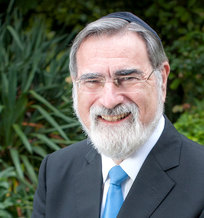
In Perek 30, Yirmiyahu writes a milestone letter to the Israelites already exiled with Yechonya to Babylon. In the letter, instead of blaming them for their exile, he offers words of comfort and hope. Among his advice, he offers the most counter intuitive advice to a minority in a larger foreign culture. He advises that they buy land, make houses, plant gardens and establish themselves by marrying and having children. He tells them to seek out the peace of the mother culture. How could he expect them to maintain their identity in such a place? Yet, Yirmiyahu is actually giving the guidance to the diaspora Jews across millenia. In the words of Rabbi Jonathan Sacks, in his work "To Heal a Fractured World" (page 102):
Comments
Podcasts
Text
|
Yirmiyahu 17
|
Yirmiyahu 18
|
|
Yirmiyahu 19
|
Yirmiyahu 20
|
Highlights
The Plight of the Prophet - Perek 20
Yirmiyahu, after his been beaten by Pashchur, the king's officer, turns to H' in desperation he utters the following plea.
Yirmiyahu 20:8-9
Yirmiyahu 20:8-9
כ,ח כִּי-מִדֵּי אֲדַבֵּר אֶזְעָק, חָמָס וָשֹׁד אֶקְרָא: כִּי-הָיָה דְבַר-ה' לִי לְחֶרְפָּה וּלְקֶלֶס, כָּל-הַיּוֹם
כ,ט וְאָמַרְתִּי לֹא-אֶזְכְּרֶנּוּ, וְלֹא-אֲדַבֵּר עוֹד בִּשְׁמוֹ, וְהָיָה בְלִבִּי כְּאֵשׁ בֹּעֶרֶת, עָצֻר בְּעַצְמֹתָי; וְנִלְאֵיתִי כַּלְכֵל, וְלֹא אוּכָל
כ,ט וְאָמַרְתִּי לֹא-אֶזְכְּרֶנּוּ, וְלֹא-אֲדַבֵּר עוֹד בִּשְׁמוֹ, וְהָיָה בְלִבִּי כְּאֵשׁ בֹּעֶרֶת, עָצֻר בְּעַצְמֹתָי; וְנִלְאֵיתִי כַּלְכֵל, וְלֹא אוּכָל
For every time I speak, I must cry out, Must shout, “Lawlessness and rapine!” For the word of the LORD causes me Constant disgrace and contempt.
I thought, “I will not mention Him, No more will I speak in His name”— But [His word] was like a raging fire in my heart, Shut up in my bones; I could not hold it in, I was helpless.
I thought, “I will not mention Him, No more will I speak in His name”— But [His word] was like a raging fire in my heart, Shut up in my bones; I could not hold it in, I was helpless.
The tragedy is that when he says the word of H' he is mocked and derided. When he tries to hold it in, he cannot for it is fire inside him which needs to erupt. Yirmiyahu is so trapped that he finally curses the very day he was born. (Yirmiyahu 20:14).
In this vein, Uri Zvi Greenberg poetically describes this space that Yirmiyahu finds himself in.
In this vein, Uri Zvi Greenberg poetically describes this space that Yirmiyahu finds himself in.
With My God, the Smith
by Uri Zvi Greenberg
Like chapters of prophecy my days burn, in all the revelations,
And my body between them’s a block of metal for smelting,
And over me stands my god, the Smith, who hits hard:
Each wound that Time has opened in me opens its mouth to him
And pours forth in a shower of sparks the intrinsic fire.
This is my just lot - until dusk on the road.
And when I return to throw my beaten block on a bed,
My mouth is an open wound,
And naked I speak with my god:
You worked hard.
Now it is night; come let us both rest.
by Uri Zvi Greenberg
Like chapters of prophecy my days burn, in all the revelations,
And my body between them’s a block of metal for smelting,
And over me stands my god, the Smith, who hits hard:
Each wound that Time has opened in me opens its mouth to him
And pours forth in a shower of sparks the intrinsic fire.
This is my just lot - until dusk on the road.
And when I return to throw my beaten block on a bed,
My mouth is an open wound,
And naked I speak with my god:
You worked hard.
Now it is night; come let us both rest.
Comments
Nach Yomi
Here's the way it works. From Monday to Thursday I will be posting a 5 minute podcast of the chapter of the day. It will be a brief summary with a few points to ponder. I will also be sending out the Sefaria text so you can use it.
Archives
Proudly powered by Weebly

